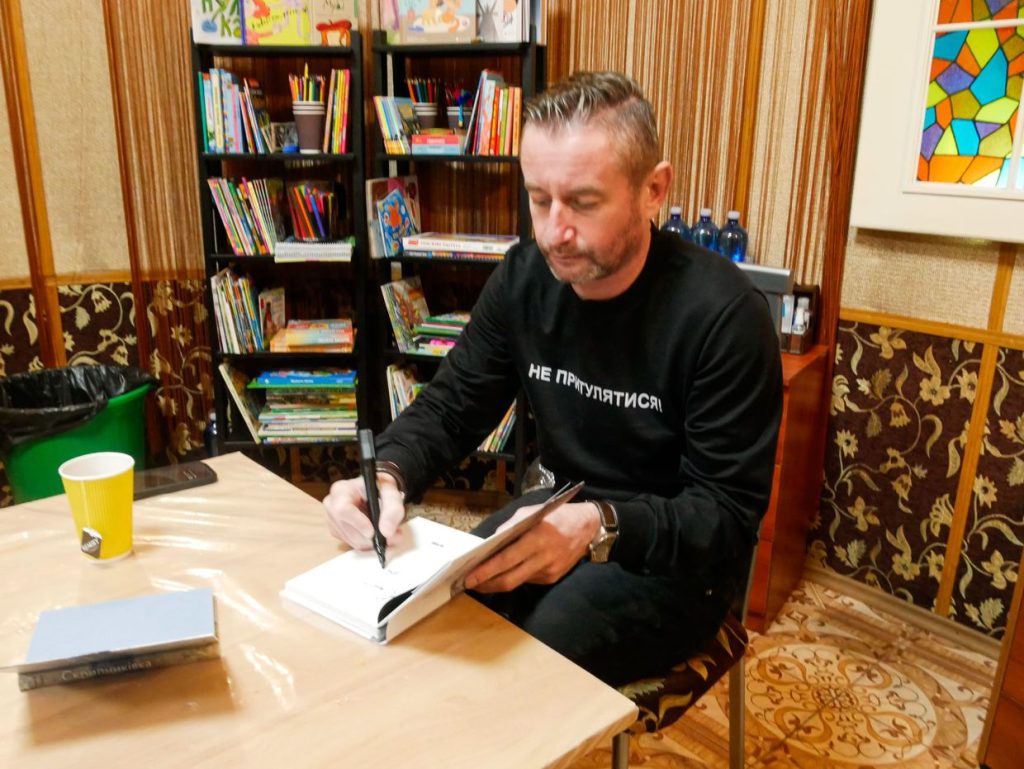artistic unity, but Zhadan is not here to perform a play. He is here to talk about the war, about literature, about Ukraine. As we settle into the comfortable chaos of the theater’s administrative office, Zhadan lights another cigarette and begins to speak with an intensity that borders on desperation.
For Serhiy Zhadan, literature is not just a form of artistic expression; it is a weapon in the ongoing conflict between Ukraine and Russia. The war, which has been raging for over seven years now, has had a profound impact on both countries, not only in terms of casualties and physical destruction, but also in terms of culture and identity. Zhadan is acutely aware of the power of literature to shape the narrative of a nation, and he sees it as his duty to use his writing to resist the forces that seek to erase Ukraine’s history and culture.
In the eyes of Zhadan, the conflict between Ukraine and Russia is not simply a political or military one; it is a battle for the soul of Ukraine, for the right of the Ukrainian people to define their own identity and determine their own future. He is acutely aware of the historical and cultural ties that bind Ukraine and Russia, but he is also keenly aware of the ways in which Russia has sought to dominate and oppress Ukraine throughout history. For Zhadan, the war is not just about territory or resources; it is about freedom, dignity, and the right to self-determination.
Zhadan’s writing is deeply rooted in the soil of Ukraine, drawing inspiration from the landscapes, history, and people of his homeland. His novels and poems are populated by characters who are struggling to make sense of a world that has been torn apart by war and violence. Through his writing, Zhadan seeks to give voice to the silenced and the marginalized, to shine a light on the stories that are often overlooked or ignored.
Despite the challenges and dangers that come with being a writer in a country at war, Zhadan remains committed to his craft and to his country. He believes that literature has the power to transcend borders and language barriers, to connect people across divides and to inspire hope and resilience in the face of adversity. For Zhadan, the act of writing is an act of resistance, a refusal to be silenced or censored by the forces of oppression and tyranny.
As we leave the theater and step out into the bustling streets of Kharkiv, I am struck by the contrast between the chaos of the city and the quiet determination of Serhiy Zhadan. In a world that is torn apart by conflict and division, Zhadan stands as a beacon of hope and a reminder of the power of literature to transcend barriers and create connections. His words echo in my mind long after our conversation has ended, a testament to the enduring legacy of a writer who refuses to be silenced, even in the face of unimaginable adversity.


